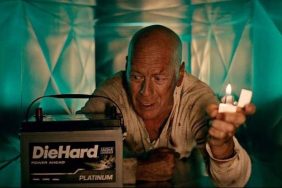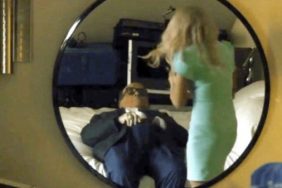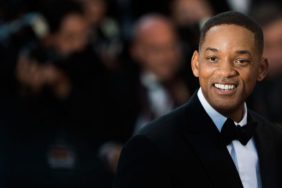
CraveOnline: It’s hard to imagine turning some of them down. “You want a Die Hard?” “Yeah, I’ll take a Die Hard.”
Jai Courtney: Yeah, that was cool.
Has there been a franchise that just flat out asked if you wanted to do it, or did you have to audition for every single one?
No, things are changing somewhat. Certainly Terminator was a long audition process. One particular test with Emilia [Clarke] and Alan [Taylor] lasted several hours. Suicide Squad came my way after a meeting with a David. The shape of how those jobs come about is changing a little, but by no means am I just handed offers at this point and I get to just pick and choose. That would be a wonderful luxury, but I haven’t quite reached that point.
“By no means am I just handed offers at this point and I get to just pick and choose. That would be a wonderful luxury, but I haven’t quite reached that point.”
One of the things I always thought was really cool about being in these big action movies is that you must get to learn how to do a lot of cool stuff.
Always. You totally do. That’s been one of the great pleasures of every job, really. I’ve had to pick up new skills or undergo intense training for whatever it is. Sometimes that’s just to meet the physical demands of the role, or to achieve an image that is desirable for that part, and sometimes it’s about learning a completely new skill.
I did this film The Water Diviner with Russell Crowe and he’d asked me in our first meeting if I knew how to ride a horse, and I lied to him and said, “Uh, yeah, of course.” And he was like, “Don’t bullshit me,” and he knew from that moment on that I was lying through my teeth. But I assured him. That was one of the great joys of preparing for anything. I would work as hard as I could, and I had to look savvy on a horse for his film. So stuff like that, stunt driving. I’m by no means a gun nut but I’ve done a ton of weapons work over the years for these sorts of things.
You got to assemble a battle-ax [in I, Frankenstein]. Not every actor gets to say they’ve done that.
I did get to assemble a battle-ax. [Laughs.]
That’s a fun bit. I always wondered why you didn’t just have it over your back. Is it more convenient to…?
No, it’s just more convenient to assemble it this way. It looks cool. It’s totally impractical but it looks cool.
Was that a good experience, I, Frankenstein? It looked like a fun movie to make.
Um… it wasn’t my most fun experience, filming. But I was still figuring a lot of things out at that point. It really was the second larger feature film that I’d taken on, and look, it was cool but I feel like the nature of that shoot, there were a lot of people trying to figure out what we were making and I’m not sure Stuart [Beattie, the director] necessarily was given the chance to execute his vision. I don’t feel like there was perhaps a lot of synergy.
It feels like it’s trying to be every kind of movie.
Kind of, and I think that’s scary territory to be in. So you know, look, it’s by no means a regret of mine but I have had more fun on other films.
“I guess you have to hope at the end of the day that the smartest person in the room is being heard.”
Is that when a film stops being fun, when it doesn’t feel like everyone’s on the same page?
Yeah, a little bit. Yeah, it’s certainly nerve-wracking because… Look, I think the best thing, what I like to do as an actor is completely hand over all trust to a filmmaker, a director, and it’s a wonderful experience when someone is getting to totally execute their vision the way they see it. And that doesn’t always happen with studio movies. There’s a lot of things at play, a lot of sensitivity around stuff. When studios are throwing up hundreds of millions of dollars, there’s a bunch of execs that feel they know just as well what a product needs to be, and sometimes there’s disagreements on those levels.
But I guess you have to hope at the end of the day that the smartest person in the room is being heard. Yeah, so that’s kind of the difference [between] the indie world and studio stuff, is sometimes directors don’t have as much creative control as perhaps they’d like to. I’ve had varied experiences on different movies…
Is there a particular film you just feel came out the way everyone on set really wanted it to?
Yeah, it was a little movie called Felony. I don’t know if you caught it. Yeah, that’s a prime example of when we had no money but a fantastic script and a small, zero bullshit crew with a great filmmaker who’d been part of the development process for years, with Joel Edgerton. Joel handed over, at that point, all of his voice to Matt Saville, to shape that thing. I think they got to a point where the thing was so solid and all the themes were clear, so it was like, cool man, here it is. Let’s go and play music.
Sometimes with big action things, it’s a little more like we’re 80% there when you get going, and then a lot of that extra fine-tuning comes throughout the process. Sometimes that’s hard to keep track of as an actor, and hard to kind of know where it’s going to end up, if it’s still taking shape while you’re in the process.
William Bibbiani is the editor of CraveOnline’s Film Channel and the host of The B-Movies Podcast and The Blue Movies Podcast. Follow him on Twitter at @WilliamBibbiani.








